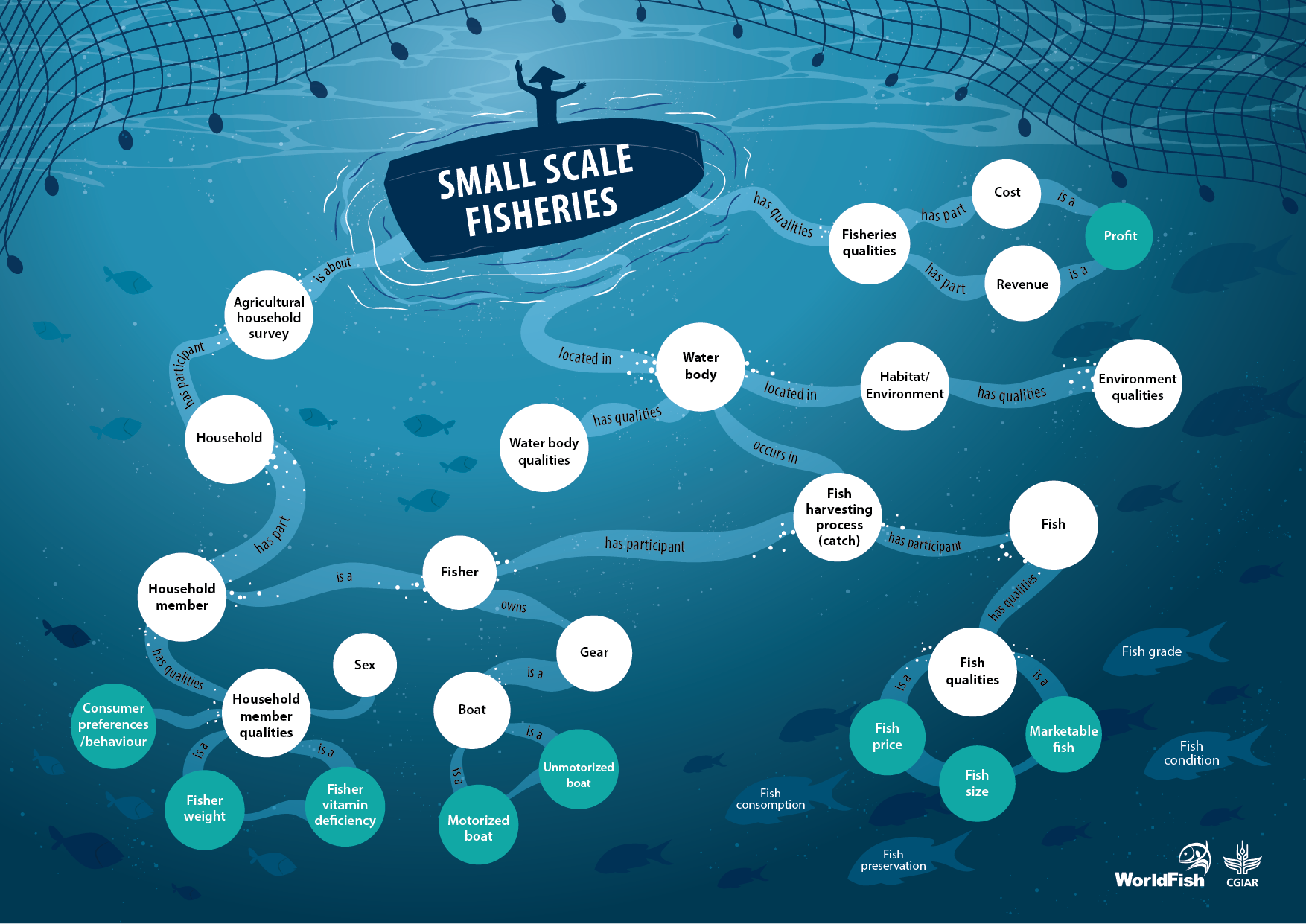About
An ontology is a way of structuring the meaning and relationship between words and terms in a specific discipline - such as aquatic food systems. Ontologies provide a common language for different kinds of data to be easily interpreted and interoperable allowing easier aggregation and analysis.
Heterogeneous and multidisciplinary data are generated by research. This data is analysed and often integrated into predictive models for climate change or decision-making tools for fisheries management and aquaculture production. WorldFish and CGIAR research aims to improve the sustainability, productivity and resilience of aquatic food systems. Harmonising the labelling of aquatic foods data with controlled vocabularies will enable easier data aggregation, interpretation, and analysis.
NAVIGATE the Fisheries & Aquaculture ontology
|
Enter Search Terms here
|
Key Contributors (alphabetically)
The Small-Scale Fisheries and Aquaculture Ontology Working Group was formed in 2019 to compile, update and contribute fishery related terms to existing controlled vocabularies. The objective is to improve the WorldFish data interoperability into the various projects, databases and repositories by (a) addressing inconsistent use of fisheries and aquaculture related terms across the datasets, (b) highlighting the missing terms in the main semantic resources, and (c) connecting and collaborating with the CGIAR Community of Practice for Ontology.
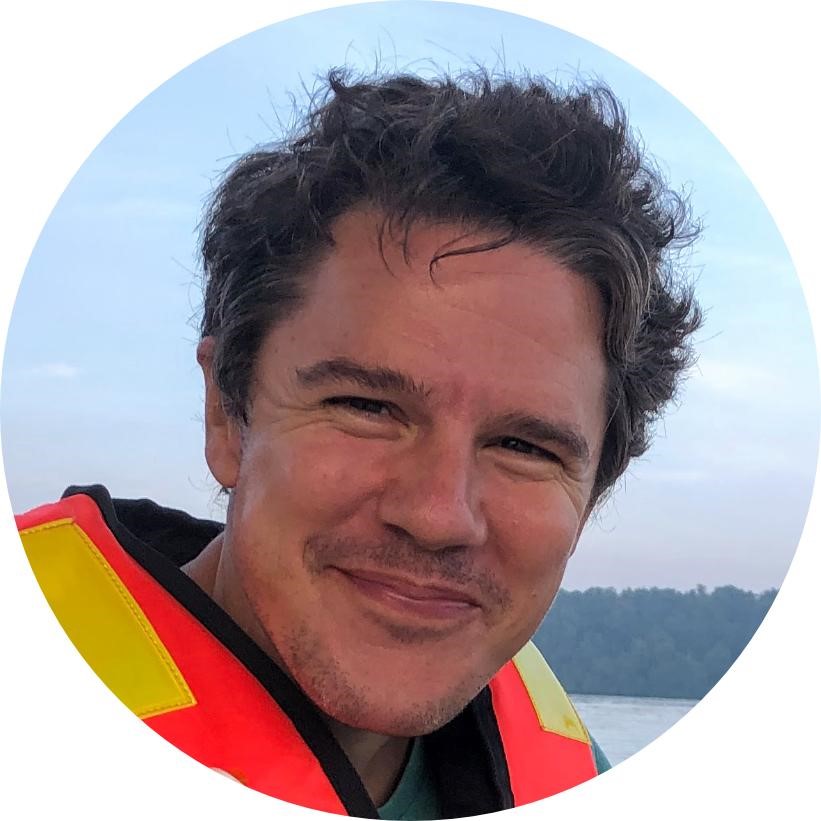 Alex Tilley
Alex Tilley
Senior Scientist
WorldFish
Google Scholar | |
 Daryl Lustracion Superio
Daryl Lustracion Superio
Consultant, Philippines
Alliance Bioversity-CIAT
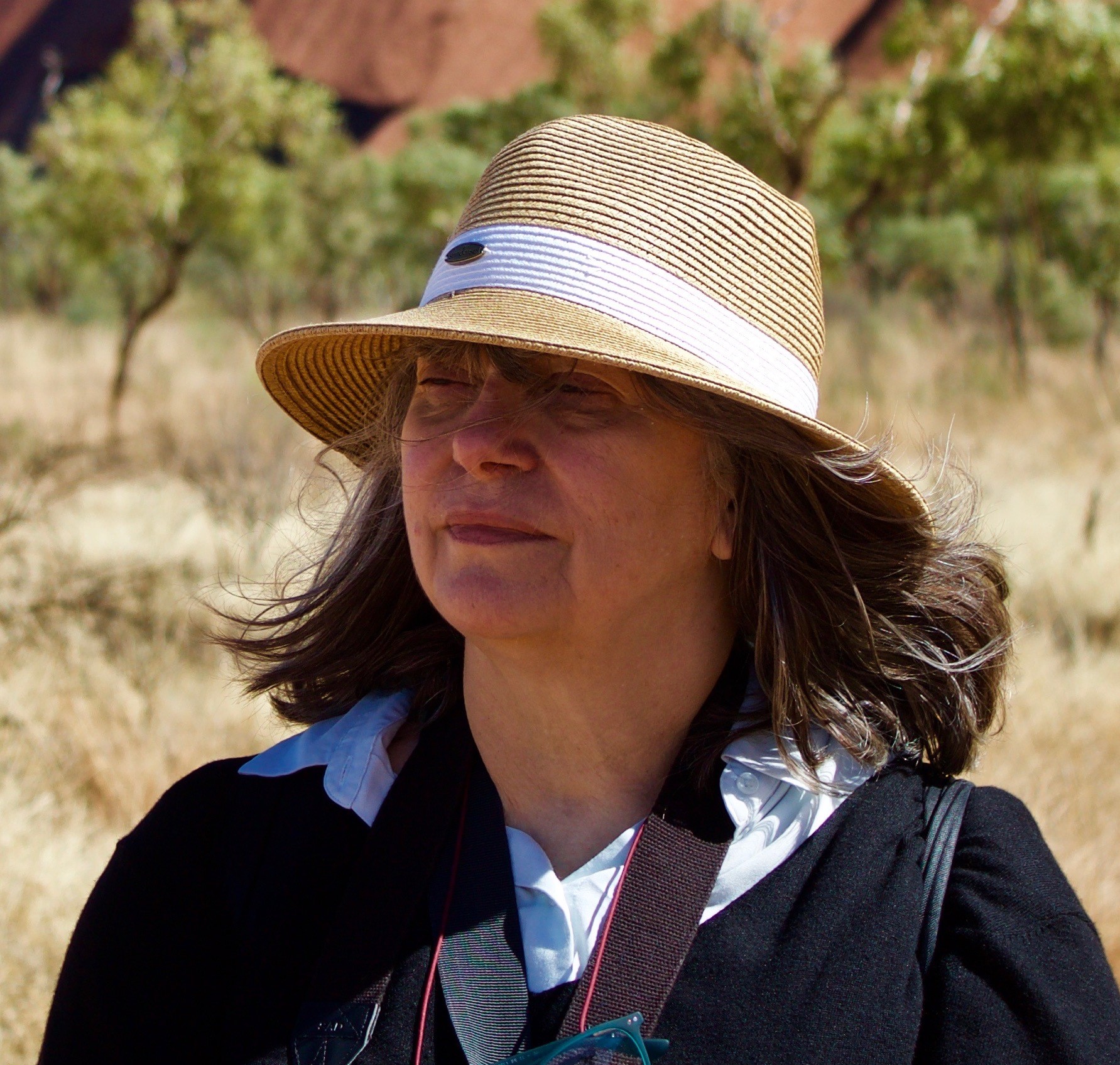 Elizabeth Arnaud
Elizabeth Arnaud
Senior scientist Biodiversity
Alliance Bioversity-CIAT
Google Scholar | |
 E. Fernando Cagua
E. Fernando Cagua
Consultant Data Scientist
Google Scholar
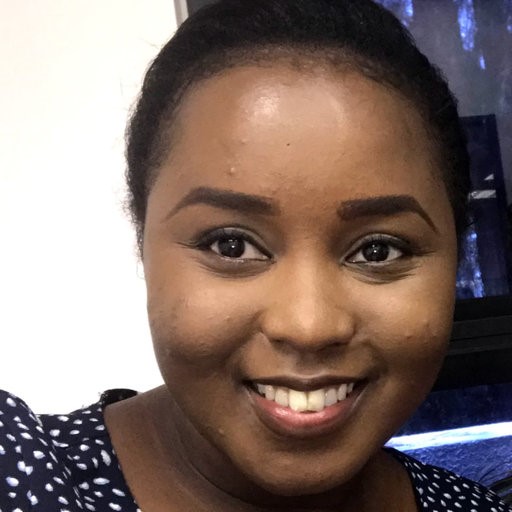 Jacqueline Muliro
Jacqueline Muliro
Consultant Data Manager
Google Scholar
 Jerome Delamare-Deboutteville
Jerome Delamare-Deboutteville
Scientist
WorldFish
Google Scholar
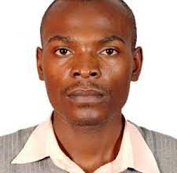 Kelvin Mashisia Shikuku
Kelvin Mashisia Shikuku
Economist
WorldFish
 Marie-Angelique Laporte
Marie-Angelique Laporte
Alliance Bioversity-CIAT
Google Scholar
 Matthew Hamilton
Matthew Hamilton
Genetics
WorldFish
 Rodrigue Yossa
Rodrigue Yossa
Scientist (Fish Feeds & Nutrition)
WorldFish
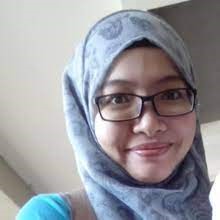 Saadiah Ghazali
Saadiah Ghazali
Data Management Specialist
WorldFish
Google Scholar
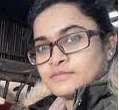 Tusnuva Jahan
Tusnuva Jahan
Master student
University of Lille, France
Google Scholar
GET INVOLVED
See the GitHub repository here: https://github.com/WorldFishCenter/fish-ontology
Please submit your terms to help complete the ontology.
CITATION
We request that users cite the ontology using the following citation:
Small-Scale Fisheries and Aquaculture Ontology 2022. WorldFish and the Alliance of CIAT & Bioversity. Penang, Malaysia. doi.org/10.5281/zenodo.7381034

The small-scale fisheries and aquaculture ontology is licensed under a Creative Commons Attribution 4.0 International License.
